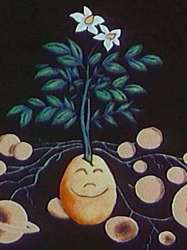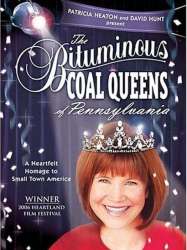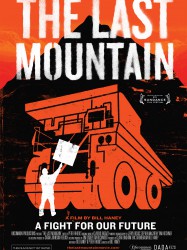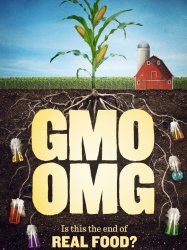After Winter, Spring is a film of genre Documentary released in USA on 25 february 2015
After Winter, Spring (2015)

If you like this film, let us know!
Released in USA 25 february 2015
Length 1h15
Genres Documentary
Themes Environmental films, Documentary films about business, Documentary films about environmental issues
Rating67%










After Winter, Spring is a 2012 documentary film directed by Judith Lit that follows the lives of family farmers in the Périgord region of France. In addition to documenting their way of life, the film also depicts their struggles under pressure from real estate development, government agriculture policy, and large-scale agribusiness.
The film has screened at a number of film festivals. Its awards include Best Documentary at the 2013 Arizona International Film Festival and the Audience Award for Best World Cinema Documentary at the 2012 Mill Valley Film Festival.
Comments
Leave comment :
Suggestions of similar film to After Winter, Spring
There are 8971 with the same cinematographic genres, 1248 films with the same themes (including 93 films with the same 3 themes than After Winter, Spring), to have finally 70 suggestions of similar films.If you liked After Winter, Spring, you will probably like those similar films :

The Dark Side of Chocolate (2010)
Origin Danemark
Genres Drama, Documentary
Themes Films about children, Environmental films, Films about slavery, Documentary films about business, Documentary films about law, Documentary films about environmental issues, Documentaire sur une personnalité, Documentary films about child abuse, Films about child abuse
Rating74%





In 2001, the Chocolate Manufacturers Association formed an action plan entitled the Harkin-Engel Protocol aimed at ending child trafficking and slave labor in the cocoa industry.

Mountaintop Removal (2007)
Genres Documentary
Themes Environmental films, Documentary films about business, Documentary films about environmental issues, Documentary films about technology
Rating80%






Queen of the Sun (2010)
, 1h23Origin USA
Genres Documentary
Themes Films about animals, Environmental films, Documentary films about business, Documentary films about environmental issues, Films about insects
Rating71%





 , 22minutes
, 22minutesOrigin Danemark
Genres Documentary, Animation
Themes Cooking films, Environmental films, Films about the labor movement, Documentaire sur la cuisine, Documentary films about business, Documentary films about environmental issues, Documentary films about historical events, Documentaire sur le monde du travail, Mise en scène d'une plante
Rating74%





Fiche technique Directeur et auteur : Anders Sørensen ;
 , 1h29
, 1h29Directed by David Hunt
Origin USA
Genres Documentary
Themes Environmental films, Documentary films about business, Documentary films about environmental issues, Documentary films about technology
Actors Fabian Forte
Rating69%






The Last Mountain (2011)
, 1h35Origin USA
Genres Documentary
Themes Environmental films, Documentary films about business, Documentary films about environmental issues, Documentary films about historical events, Documentary films about politics, Documentary films about technology, Political films
Rating76%






The Great Resistance (2007)
, 1h15Directed by Denys Desjardins
Origin Quebec
Genres Documentary
Themes Environmental films, Films about the labor movement, Documentary films about business, Documentary films about environmental issues, Documentaire sur le monde du travail
In the 1930s, in the throes of the Great Depression, the government of Quebec relocated more than 80,000 citizens to found a new settlement in the virgin forests of Quebec’s Abitibi region. After enduring backbreaking work to clear the land, however, many left, seeking a better life in the city or as labourers for the large corporations that had come to exploit the North’s valuable resources. The Lalancette family, however, have persisted in forging their future on the land from one generation to the next, earning their keep from farming, and defying the constraints of globalization and the mining and forestry companies that control the area. Revisiting the heritage of Quebec filmmakers who documented Abitibi, following in the footsteps of Pierre Perrault, among others, this documentary traces a defining chapter of Quebec history and raises fundamental questions about regional development.

GMO OMG (2013)
, 1h30Origin USA
Genres Documentary
Themes Environmental films, Documentary films about business, Documentary films about environmental issues
Rating63%






God's Country (1985)
Directed by Louis Malle
Origin USA
Genres Documentary
Themes Environmental films, Documentary films about business, Documentary films about environmental issues, Documentaire sur une personnalité
Actors Louis Malle
Rating74%





Chronique d'une petite ville du Minnesota, Glencoe, où Louis Malle fit deux voyages à dix ans d'intervalle.
 , 1h48
, 1h48Directed by Marie-Monique Robin
Origin France
Genres Documentary
Themes Environmental films, La mondialisation, Films about the labor movement, Documentary films about business, Documentaire sur l'altermondialisme, Documentary films about environmental issues, Documentaire sur le monde du travail
Rating79%





The film reports many controversies surrounding the use and promotion of genetically modified seeds, polychlorinated biphenyls (PCBs), Agent Orange, and bovine growth hormone. Cases in the United States (including Anniston, Alabama), Canada, India, Mexico, Paraguay, the United Kingdom (Scotland) and France, are explored, claiming that the Monsanto corporation's collusion with governments, pressure tactics, suppression and manipulation of scientific data, and extra-legal practices aided the company's attempts at dominating global agriculture. Scientists, representatives of the United States Food and Drug Administration and the United States Environmental Protection Agency, civil society representatives, victims of the company’s activities, lawyers, and politicians are interviewed.
 Connection
Connection